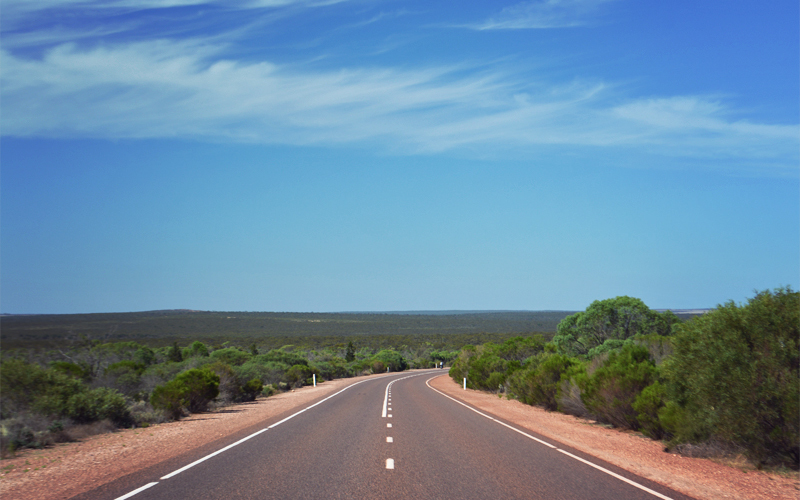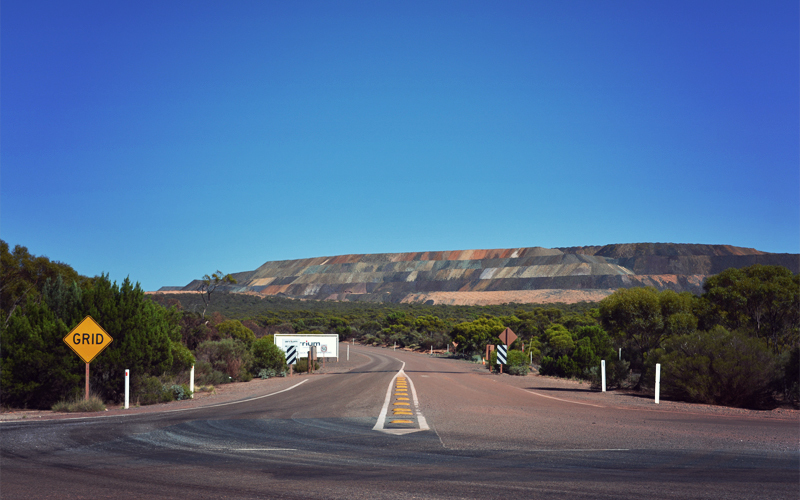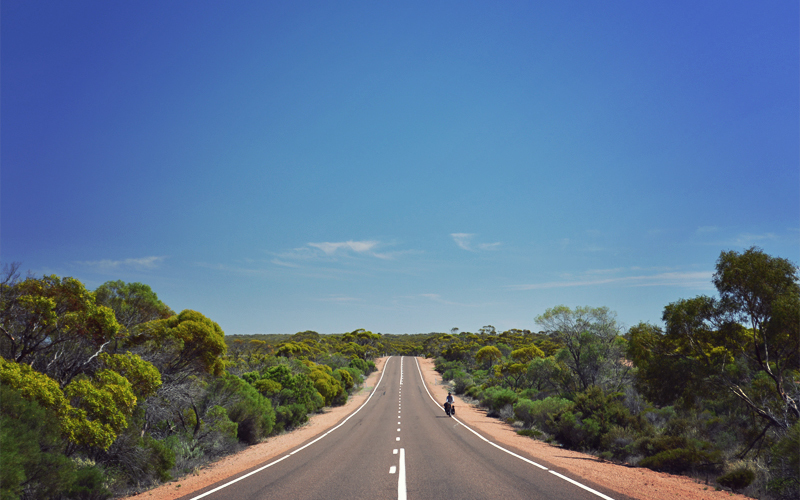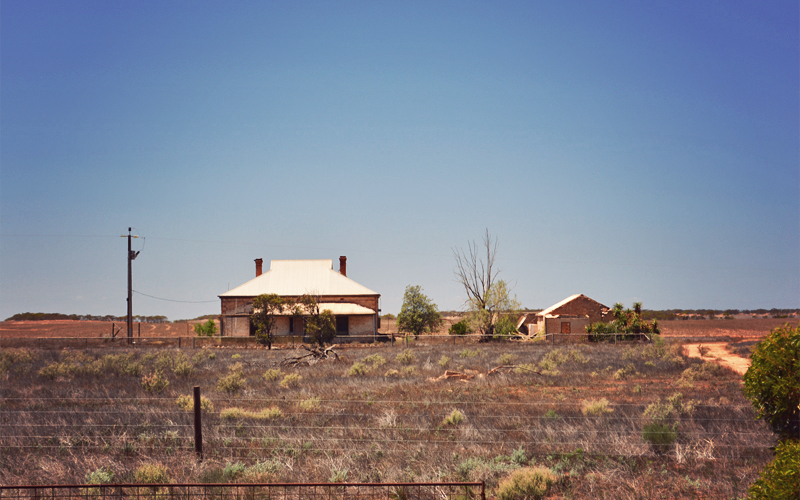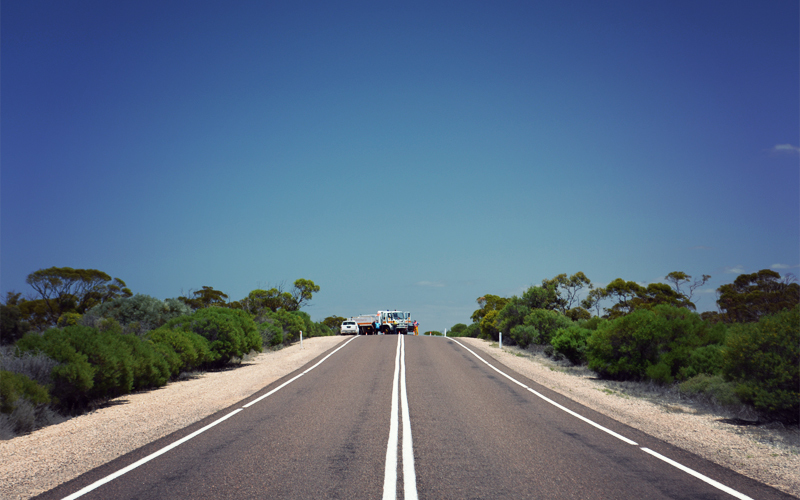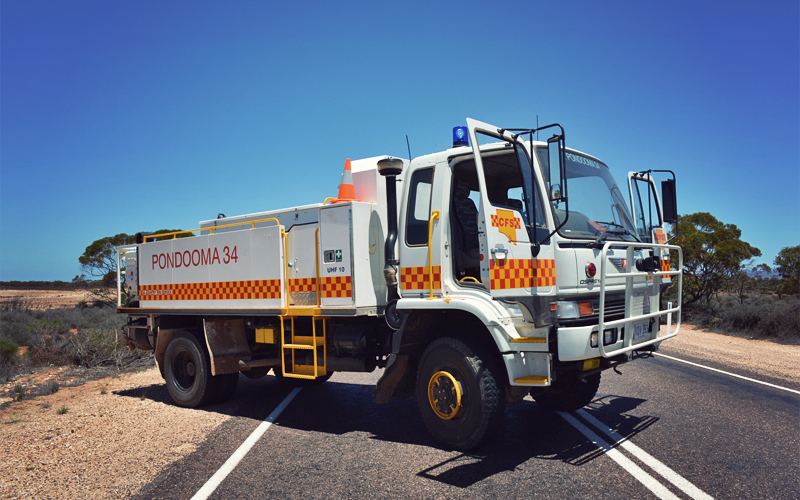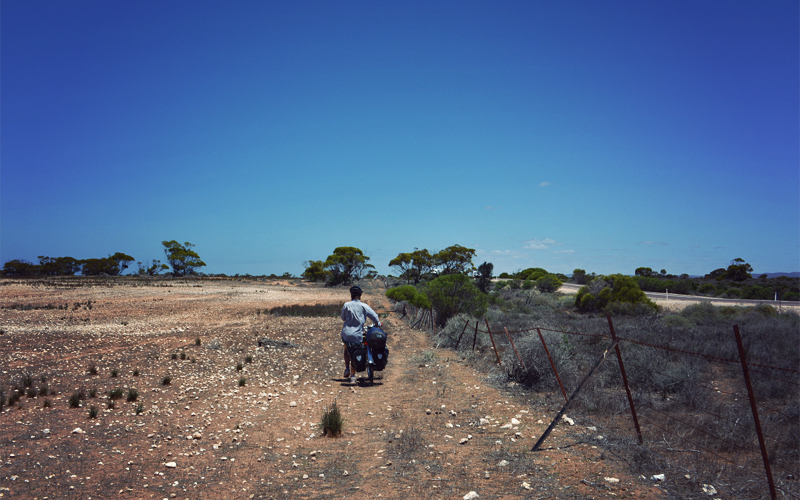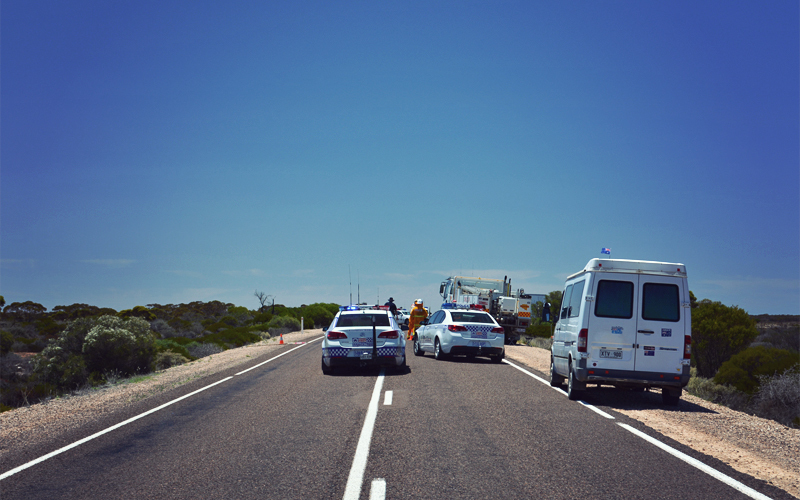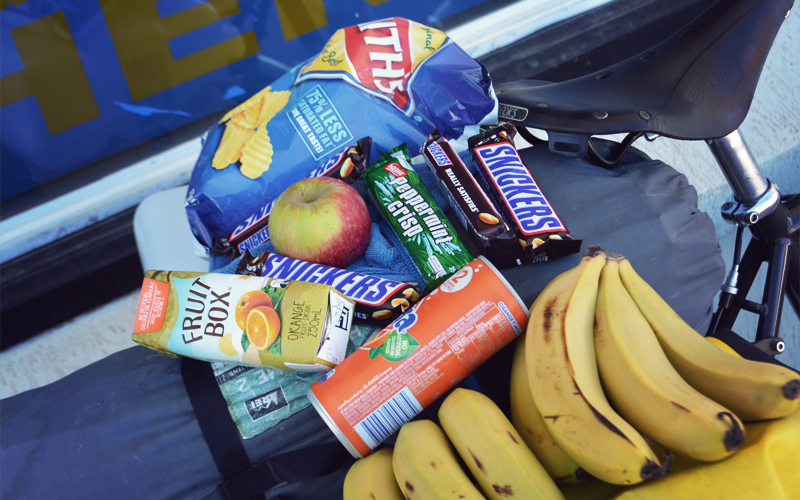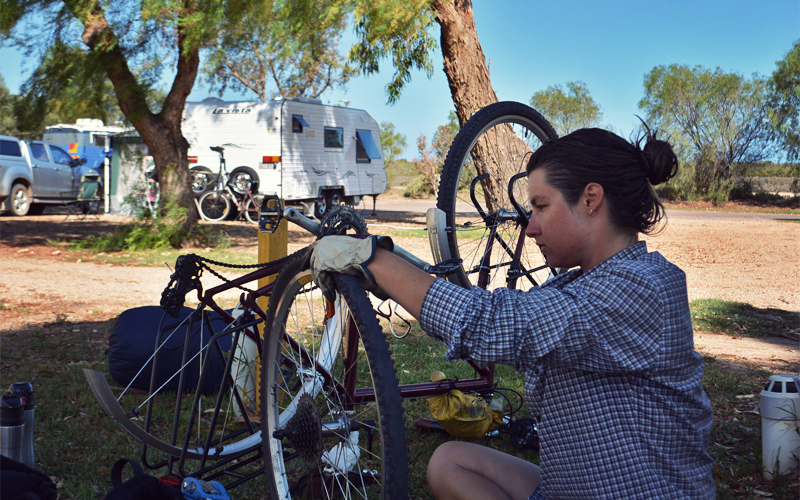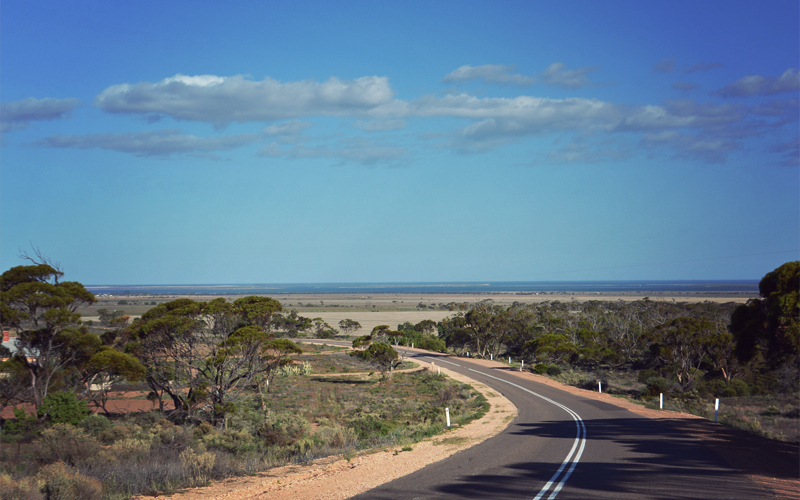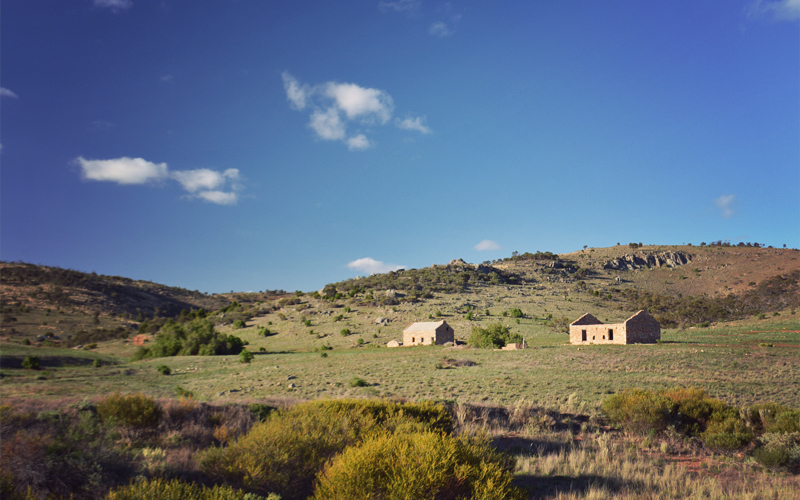January 24, 2015
Day 151: 18 miles south of Whyalla, SA to near Cowell, SA
I wake up around 6:30, and from the moment I look outside the tent I can't stop staring at the trees. The trees are amazing, not because of their shape or their color or the intricate designs created by their branches, but because of the fact that those branches aren't moving. Every time I look up again I'm afraid that I'll see them whipping back and forth like they did all yesterday morning and afternoon and evening and night. To make sure that doesn't happen, we spring to life and turn the tent into a hurricane of pannier packing, air mattress deflating, and high-speed Tim Tam eating. Throughout all of it I picture us speeding along toward Cowell at thirteen miles per hour, laughing all the way about how fast we're going and how wonderful that is.
It's a glorious fifteen minutes, and then the wind returns.

| Heart | 1 | Comment | 0 | Link |
The windless times are such a big deal on this stretch of road because the wind direction and strength aren't going to change in any meaningful way this week, next week, or probably the week after that either. It's big winds from the south all day, every day. When we first thought about coming this way, we planned to ride to the southern end of the peninsula at Port Lincoln. But after living with the headwinds for the past two days we're more than happy to break off at Cowell and head west.
But it's almost a full day of riding until we get there, so we drop into a low gear and get back to the slow cranking. It's the sort of country where at least once a mile we see the long leg bones and small skulls of road-killed kangaroos that have been picked clean by the birds and the flies and whatever else feeds off the dead out here. In the distance we soon see barren stretches of orange and tan hillsides that extend for miles at perfectly machined angles that have been picked clean by the mining companies. And then there's us, the two lone bicycle tourists pinching out high-pitched farts and giving each other dirty looks after each one.

| Heart | 0 | Comment | 0 | Link |
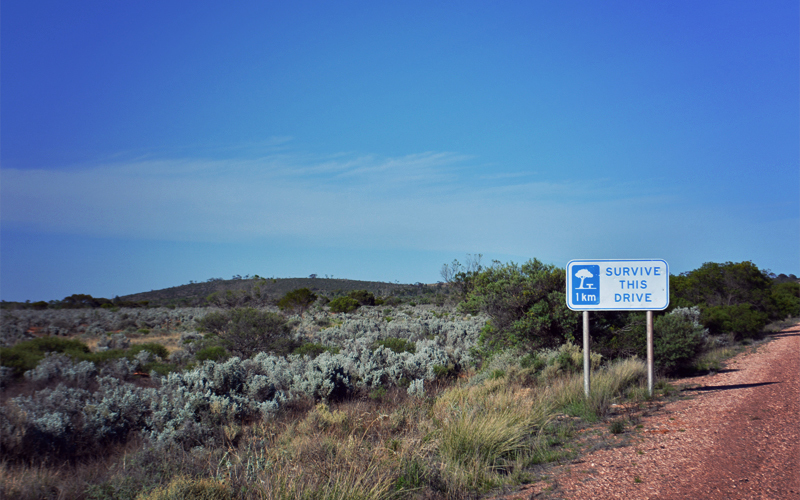
| Heart | 0 | Comment | 0 | Link |
Unlike yesterday the road never runs flat. We're always climbing or descending on rises that are just high enough to obscure what lies beyond them until we reach the top. What we see at the top surprises us. Like most people, our perception of this part of Australia was that it's all brown and yellow and red, just on the verge of dead, and that what we'd look out at while riding would be dull and lifeless. But instead we look out on an ocean of green — not only the pale greens and blue-greens of deserts, but healthy, vibrant shades of green, some as dark as the needles of the pine trees you'd find on the Pacific Coast in Oregon where it rains all the time. It turns out that even though the summers here have intense hot and dry and stretches, the winters are cool and wet, to the point that the vegetation stays green all year long. It's not the kind of beauty that walks up and smacks you across the face with its brilliance, but it's a joy to cycle through all the same.
It's made even better today by the fact that the wind has stayed light, the temperature cool, and the traffic sparse. But the farther we go, the more I notice that the traffic feels too light. There should be a lot more caravans and loaded-down SUVs and utes towing fishing boats on the Saturday morning of this summer weekend, and yet we're nearly alone.
I pedal hard to catch up with Kristen. When I draw even with her I say, "I think we're gonna see a car accident soon."
There's no other explanation. And with that realization comes this surreal feeling, this innate knowledge that the road we're riding on shouldn't look or feel or sound like this, this understanding that the reason for it is almost certain to be a terrible one.
We push hard and we only stop for short breaks. Part of it's because we want to take advantage of the only time we'll ever see a major highway empty of cars on a Saturday afternoon, but it also has to do with the same morbid curiosity that took hold around the scene of the fatal accident yesterday morning. There's this animal-type instinct to want to find out what's happening up the road that spurs us on.
But nothing happens. We pedal for hours all alone, seeing nothing awful or unusual beyond a single fresh-killed kangaroo that's at least six feet tall. I keep expecting someone driving a police car or fire truck or ambulance to come by and tell us to turn around, but the only cop car we see heads past in the opposite direction without so much as a wave.
"Maybe we died and this is our heaven," Kristen says.
I think about this for a moment.
"But we have a headwind," I tell her.
That can't be it either.
Six miles from Cowell we crest a rise, and there in front of us we see a big white Country Fire Service engine parked across the width of the highway. As I roll to a stop, I talk to one of the volunteer firefighters who stands in front of the truck's huge front bumper. He's in his sixties, skinny, with the deep tan and skin creases that tell of a life spent working outside in rural Australia. His long white beard is as thick as his country accent, and he walks toward me with a hitch in his step.
"What happened up ahead?" I ask him.
"Car-truck accident," he says at a slow, measured pace. "A bad one. Head-on collision. It's really ... it's not good."
"When did it happen?"
A different man standing off to the side mumbles something about 8:30 or 8:45. And in that instant I realize how it means that one of the cars that passed us earlier this morning, where the driver moved over into the other lane to go around us safely was involved. I might have waved at them as thanks for being careful. Now that driver and anyone else who was in the car with them is almost certainly dead, because you don't slam into a truck at the speeds people drive out here and walk away from it.
This fucking highway. I use the term death trap a lot to describe some of the terrible roads we cycle on, but Highway B100 in Australia is proving itself to be exactly that.
We're told that we can't pass. The fire captain radios the police to see if they'll make an exception, but a bunch of jumbled sounds that end with the word negative crackle back over the radio fifteen seconds later. It's suggested we turn around, or if we don't want to do that, that we could set up the tent back off the road and wait for the scene to clear. That could be eight to ten hours, and maybe more.
"Ya know, you could go through that paddock over there," says the firefighter with the beard. "I know the guy that owns that land, and he wouldn't care at all. There's a gate over there to get in. Don't know if you'll find one on the other side. But if you want to, it'd be alright."
And with that we thank him for his help and push on, wheeling the bikes over the rocky remains of truck tracks that haven't seen a truck travel on them in a decade, dodging sand and glass and sharp chunks of rock along the way. As we approach the scene a quarter of a mile on, a young police officer with a stern look on his sunglassed face walks over to the opposite side of the fence.
"No pictures, no stopping," he says. "Don't come back over the fence until you're past the white van down there."
But he can't stop us from seeing what's obvious: the northbound truck with the front all smashed in, resting in the bushes having crossed over the southbound lane; the wreckage of a car so badly mangled that it's no longer clear it's a car; and a dozen police and firefighters all standing idle, because people died here and nothing's to be moved until an investigation takes place.
As we walk the bikes past the crash site I think about how on bicycles we know we're not safe. We hear every car approach, we're bounced by the rush of the wind as it speeds by, and we feel the shake of the ground as it reminds who's bigger and nastier. In a car the noise is muffled, the speed doesn't seem all that fast, and the seat belts and air bags and anti-lock brakes make you feel safer, but really you're not. The same danger is still there, only it's actually magnified, because everything happens twice as fast, because there's so little space to recover from mistakes, and because the person barreling toward you in the other direction is dealing with all of the same limitations. When you look at it from that perspective, it's amazing we don't come across these kinds of horrific accidents more often.
As we approach the white van, four firefighters head toward us, kicking at the bushes to scare off any snakes that might be sitting beneath them.
"Let us help you with those bikes," they call out to us. "We're bored. We've got nothing to do!"
They lift up the barbed wire above a leaning section of fence so that we can wheel the bikes under it and cross out of the paddock, and then help us lift the bikes over the thick bushes and back up to the road, kicking for snakes all the while. And then we pedal off, once again all alone, and once again thinking about the sad scene as it fades from view.
Cowell is another old-time small town where the grocery store closed at noon because it's Saturday. This isn't a huge deal on its own, but when we look up the hours for the grocery store in the town about thirty miles up the road we find that they're closed all day tomorrow. And because Monday is Australia Day, everything in the towns beyond that one are probably going to be closed as well. All of a sudden the food situation has turned into a small disaster. We do our best to put a band-aid on it, first by eating burgers at the only open takeaways in town, then by loading up on candy bars, potato chips, and all of the tiny bananas that sit on top of the counter at the gas station. It might work out. More likely it's going to become a bigger disaster. I'm anxious.
We grab showers and fix the slow leak in Kristen's back tire at the nearby caravan park. As I repack my panniers, a couple of old men walk by.
"Oy-di-dagga-nah?!" one of them asks, or at least that's what I hear.
There's not an intelligible word in there; nothing for me to grab on to. But not wanting to offend, I smile and give him a thumbs up.
As I'm relaying this to Kristen a few moments later, another chain-smoking old timer walks past. Trying to make up for what happened with the other guys, I say "Hiya" and smile.
"Jig-di-jabba-toe?" he asks.
Oh for god's sake.
I smile and wave and feel like a complete idiot as I wonder what corner of Eastern Kentucky we've been teleported to.
Not far from town we turn right, away from the blue-green waters of the Spencer Gulf that we only saw a few times in the last couple of days, and start crawling toward the west. And it's a total crawl, because we head up over a series of hills into a wind that now comes straight from the west. It's the kind that sends dust devils swirling along driveways, makes the bikes wobble constantly, and causes us to have trouble hearing what the other person is saying, even though we're only a few feet apart. The reward for all of the effort and the incredulous bitching that follows is a landscape of rolling green that with the sheep running away from the road and the sea in the distance reminds us straight off of New Zealand.
Like New Zealand, all of the land is privately owned and all of the land is fenced. For almost an hour we look for a place to turn off the road and settle in for the night, but we find nothing close to workable.
And then all of a sudden we do. A set of truck tracks veer off to the north, the fence line wanders up and away along a low ridge line, and a thicket of short gum trees appears beyond. Behind them we find a berm of land that blocks the wind, flies by the hundreds, and just as many little bushes that turn out to have thorns all over them, although we don't realize it until we've each rolled over a dozen. But we're tired and hungry and any thoughts of flat tires will have to wait until the morning. With another cool night approaching we tuck deep into the sleeping bag and dream of a morning where we wake up to find the wind on our side.
Today's ride: 59 miles (95 km)
Total: 4,989 miles (8,029 km)
| Rate this entry's writing | Heart | 1 |
| Comment on this entry | Comment | 0 |
